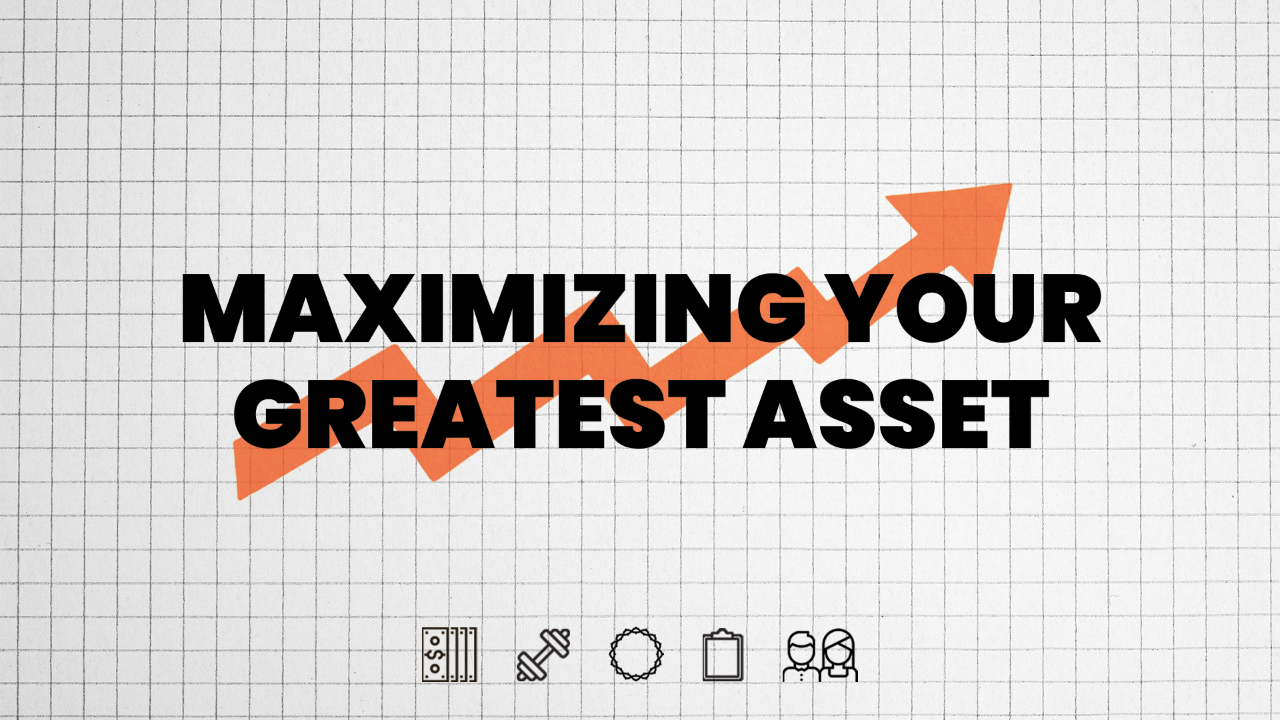Investing in Yourself
May 08, 2023
TWENTY BUCKS
One day, as an elementary aged kid, I needed help spelling a word. Well, there were lots of days that I needed help spelling words. Back then my spelling was atrocious. But this particular day was different and I’ll tell you why in a moment.
Whenever I needed to know something, like the spelling of a particular word, I would go straight to the source of knowledge. No, not Google. That wasn’t a thing yet. I went to my mom.
With a smile, she looked me in the eye and said the four dreaded words, “Go look it up.”
Ugh. I wasn’t about to pull out our family dictionary and flip through the pages trying to figure out how to spell the word enough to look up the spelling. But thankfully, I remembered I had a pocket-sized electronic dictionary in my bedroom closet.
I began rummaging through my closet, pushing clothes and toys out of the way. It probably would have been more productive to get a shovel. Finally, I found it and opened the lid.
On this particular day, I discovered something incredible! In a rush of excitement, I bound back downstairs to where my mom was sitting.
“Thank you, thank you, thank you mom for making me look up the word!” I said, grinning ear-to-ear.
My mom looked up, surprised by my exuberance and thrilled about my new found joy of the dictionary.
I opened the lid of the pocket-sized electronic dictionary to show my mom. There, resting on the mini keyboard, was a $20 bill!
As a kid, I would save money and hide it in secret places all over my room so no one would find it. Apparently, I had stashed some savings in the electronic dictionary and completely forgotten about it. I’ve always liked saving money, which is great.
What’s even better is investing.
Andrea Woroch, a nationally recognized consumer and money-saving expert, writes “When it comes to building wealth, financial experts often advise focusing on investing in index funds, ETFs, 401(k)s, IRAs and real estate. But there's another strategic investment vehicle that's often underutilized even though it can deliver far greater results: you.”
You are your greatest investment. Let’s dig into that idea.
THE GREATEST INVESTMENT
The success of any business is determined by the three Ps of business. They provide the highest return on your investment. If you aren’t familiar with the three Ps of business, they are:
- People
- Process
- Product
Marcus Lemonis, CEO of Camping World and star of The Profit, emphasizes the significance of people by arguing that businesses are based on relationships and relationships are based on people. Therefore, people aren’t just important; people form the very foundation of a successful business. Investing in people, yourself included, is crucial. Marcus asks the question, “Who’s investing in you?”
“Investing in yourself means you are putting time, money, and energy into making your current and future life better,” explains Danielle Miura, Certified Financial Planner and founder of Spark Financials. “Don’t forget you are your best asset.”
By investing in your health, wellness, relationships, and communication, you will build self-confidence, self-awareness, talents and skills to become a better leader. You will broaden your perspective, develop greater purpose, and increase your ability to earn.
As a certified life coach, I talk with clients about how they want to intentionally invest their time, energy, and resources in their lives. We walk through the Younique Life Coaching assessment of their five areas of capital:
Financial: Cash, savings, stocks, bonds, etc. This is what most of us automatically think of when we talk about investments and capital. Paying money to gain money.
Physical: Tangible assets like real estate, vehicles, tools, equipment, valuables, etc. These items not only have a monetary value, but they also add value in how they are used. For example, if you own a $60,000 truck, the truck is not only worth that, but also shows value when it is used to help a neighbor move.
Intellectual: Knowledge, degrees and certifications, skill sets. Knowledge and experience are incredibly important to companies looking for high performing talent. Mastery of a trade or specializing in an area of knowledge or practice adds immense value. It can also increase the quality of your personal life.
Relational: Social network in business, community, and other social groups. Being connected in relationships with other people brings satisfaction and wholeness to your life. Your relational capital grows your potential assets exponentially because it connects you with your network’s capital. When partnerships and friendships are formed, we help each other and naturally exchange resources. Relationships are also a crucial part of our social/emotional health and wellness.
Spiritual: Your purpose, wholeness, and faith. Being emotionally, mentally, physically, and spiritually healthy provides you with the energy and confidence to live a balanced and successful life. This inner drive is the source of your inspiration and motivation to accomplish great things. It can fuel your productivity as well as be leveraged to help and encourage others.
In what areas are you investing time, energy, and money?
HOW TO START
On the Craig Groeschel Leadership Podcast, Craig often says, “Everyone wins when the leader gets better.”
How will you get better? This is where you can start:
Overcome the expense mindset hurdle.
People agree that investing in ourselves is a good investment, but there are hurdles that stop us from intentionally pursuing that growth.
Two types of mindsets when it comes to how we use our resources are an expense mindset and an investment mindset.
An expense mindset is focused on cost. How can we limit spending and cut expenses? This mindset triggers survival mode. It believes we cannot afford it right now.
An investment mindset is focused on growth. How can we use our resources to improve, innovate, create, and impact? This type of mindset believes we can’t afford not to grow right now.
Lately, I personally have needed to shift my thinking away from “what is the cost” to “what is the investment.” Redirecting my thoughts from “how am I spending my money” to “how am I investing my money.” In order to shift to an investment mentality we must be intentional and expand our understanding of what an investment can look like. Don’t spend money on yourself, invest money into yourself. This slight paradigm shift is powerful and leads to big growth opportunities.
Focus on the areas you want to invest in.
Stephen Covey’s 7th and final habit of highly effective people is “Sharpen the Saw” where he discusses the principle of balanced self-renewal. It’s all about looking at yourself holistically: physically, mentally, socially, emotionally, and physically. How can you grow and keep a healthy balance in your life? When we invest in ourselves, he says, “It’s preserving and enhancing the greatest asset you have - you.”
By looking at the five areas of capital and your holistic areas of health, where is there a deficiency? Where do you need to invest?
First, assess each area.
How are your personal finances? Are your physical possessions positioned in a way to help others? Have you plateaued in your learning? Do you have deep connections with friends and family? How is your physical health? Are your emotions balanced? Do you have a negative thought-life? Do you find purpose in your life?
Once you have taken an honest look at your capital and areas of personal health, pick out the areas you believe you need to focus the most on to improve so that you can live a more balanced and successful life.
Second, decide how you will grow in the areas that need more attention.
Do you need to invest in growing your intellectual capital by learning a new skill, signing up for public speaking coaching, or pursuing a certification? With which specific people do you need to connect? Shoot them an email now. Do you need to exercise regularly? Research different gyms in the area and pick one to try out. Or perhaps you need to schedule a doctor's appointment. Whatever that next step is, do it.
Thinking back to my childhood and hiding money, I find it interesting that I hid a twenty dollar bill in a pocket-sized electronic dictionary. It’s almost like I intuitively knew, in my childlike innocence, the significance of investing in knowledge and understanding.
As a leader, how will you invest your time, energy, and resources to grow in your leadership and life?
By Caitlyn Neel - Certified Life Coach, Speak with People
Caitlyn empowers clients to connect with their passions, abilities, and dreams so that they can live a life of purpose, feeling confident as they accomplish their goals.
https://www.linkedin.com/pulse/expense-vs-investment-mindset-secrets-profitable-business-keckler/

